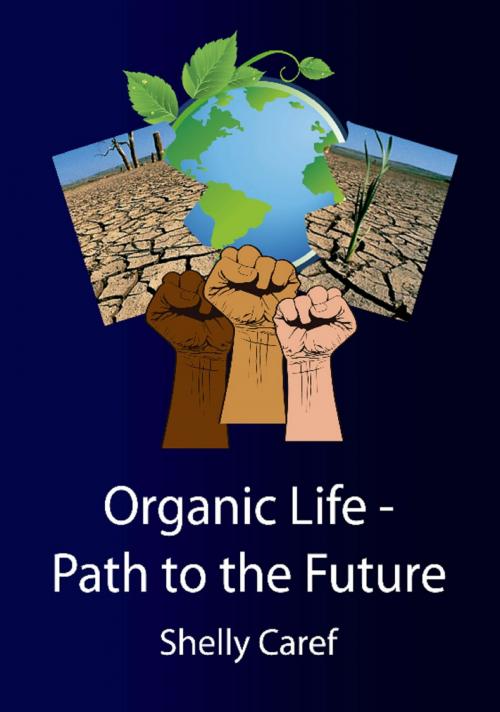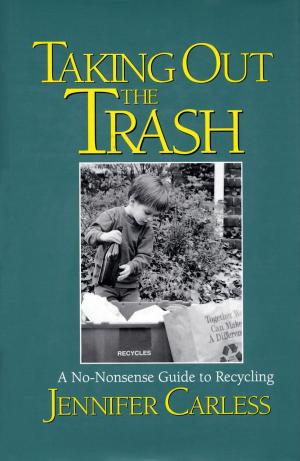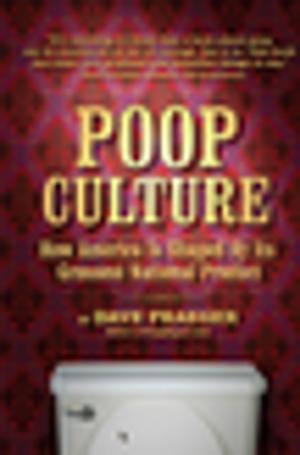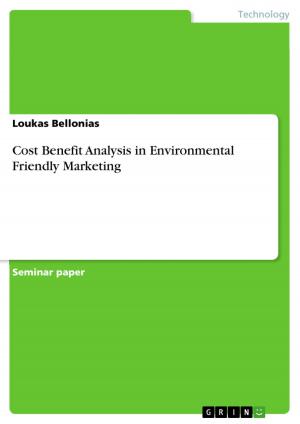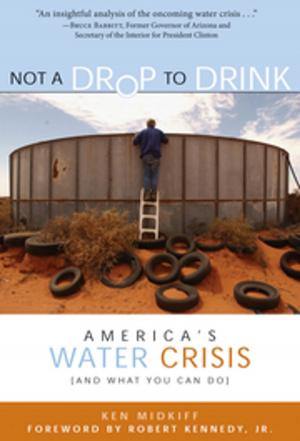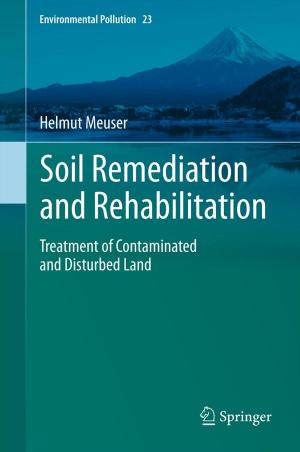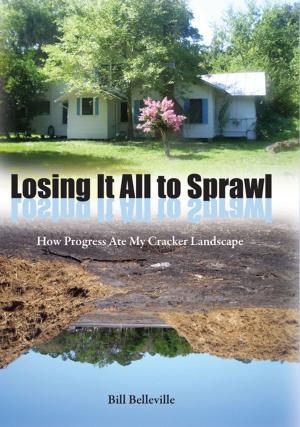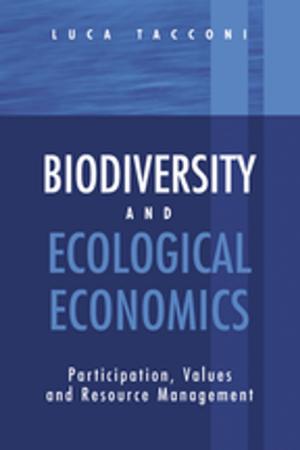Organic Life: Path to the Future
Nonfiction, Social & Cultural Studies, Political Science, Government, Public Policy, Science & Nature, Nature, Environment, Environmental Conservation & Protection| Author: | Shelly Caref | ISBN: | 9781310021848 |
| Publisher: | Shelly Caref | Publication: | July 11, 2016 |
| Imprint: | Smashwords Edition | Language: | English |
| Author: | Shelly Caref |
| ISBN: | 9781310021848 |
| Publisher: | Shelly Caref |
| Publication: | July 11, 2016 |
| Imprint: | Smashwords Edition |
| Language: | English |
A retired North American from Chicago, who spent a long career in multiple high technologies, moves to Ecuador to live on a farm in the sierras. He and his wife begin a journey of transforming the land from conventional to organic that also transforms them. They learned that organic food production is the only way to live for human health and the earth’s future; however the roadblock that prevents change is not technical but a political one. The lessons received in Ecuador can equally apply to every country in the world. His hope is that the country that opened the understanding of evolution through the Darwin’s study in Galapagos delivers Ecuadorians from the scourge of synthetic chemicals and leads the world with a new model of rural regeneration - the most important new technology to mankind.
There is a crisis in food production: farmers and small producers are not getting enough income. Consumers are also suffering food shortages, reduced variety and limited nutrients. Multinational agro-chemical companies are merging to increase their profits at the expense of the consumer. This is part of the general crisis of capitalism which adds to energy, economic, problems of mass unemployment and over-exploitation of our environment conducive to global climate change. Production has now become overproduction and is more important than the quality of life. However we can have the ability to reverse this process and achieve true quality of life through the fight for organic agricultural production.
The consequences of a food production system that focuses on maximizing profit are:
1. Profit at the expense of farmers and small producers who are increasingly impoverished
2. Increased populations that suffer from malnutrition
3. Increased residual, insoluble chemicals in human bodies that causes epidemic non-infectious disease
4. Reduced and poisoned of more than 30% of global water sources
5. Increased carbon in the atmosphere increasing global warming and negative climate change
6. Eroded soils and reduced soil organic material
Organic farming can:
• increase economy by 20% GDP and distribute more income to all sectors of the working or poor populations,
• increase clean available water 30-50%,
• sequester carbon to slow and stop global warming by 40% to 100%
• reduce non-infectious diseases by 50% (35 cancers, Parkinson's, Alzheimer's, Metabolic Syndrome, diabetes, depression, etc.)
• increase human life expectancy and add quality of life
• increase top soil regeneration
Ecuador is in a unique world position thanks to the natural resources it possesses, plus:
- The ability to produce large quantities of organic food to sell to the world
- New roads for fast transport
- National Internet to facilitate communication between rural villages, universities and teaching centers.
- A constitution that grants rights to nature with strong political support and respect for our workers, rural and urban.
People who care only about money do not respect the earth or people; production for profit exploits human and natural resources. This book offers a counterproposal: a new technology model of Rural Regenerative Development, which builds human collaboration and an evergreen environment rather than destroying them.
Changing from conventional to organic agriculture in any country requires a strong political alliance of those who struggle for food sovereignty, the quality of life, for the rights of peasants and small farmers, for the environment, along with scientists and advocates of public health, in short, all those who seek progress in the world.
The production of human nutrition demands the utmost care and consideration for its contents and results. It should never be a done for a profit. Ever.
A retired North American from Chicago, who spent a long career in multiple high technologies, moves to Ecuador to live on a farm in the sierras. He and his wife begin a journey of transforming the land from conventional to organic that also transforms them. They learned that organic food production is the only way to live for human health and the earth’s future; however the roadblock that prevents change is not technical but a political one. The lessons received in Ecuador can equally apply to every country in the world. His hope is that the country that opened the understanding of evolution through the Darwin’s study in Galapagos delivers Ecuadorians from the scourge of synthetic chemicals and leads the world with a new model of rural regeneration - the most important new technology to mankind.
There is a crisis in food production: farmers and small producers are not getting enough income. Consumers are also suffering food shortages, reduced variety and limited nutrients. Multinational agro-chemical companies are merging to increase their profits at the expense of the consumer. This is part of the general crisis of capitalism which adds to energy, economic, problems of mass unemployment and over-exploitation of our environment conducive to global climate change. Production has now become overproduction and is more important than the quality of life. However we can have the ability to reverse this process and achieve true quality of life through the fight for organic agricultural production.
The consequences of a food production system that focuses on maximizing profit are:
1. Profit at the expense of farmers and small producers who are increasingly impoverished
2. Increased populations that suffer from malnutrition
3. Increased residual, insoluble chemicals in human bodies that causes epidemic non-infectious disease
4. Reduced and poisoned of more than 30% of global water sources
5. Increased carbon in the atmosphere increasing global warming and negative climate change
6. Eroded soils and reduced soil organic material
Organic farming can:
• increase economy by 20% GDP and distribute more income to all sectors of the working or poor populations,
• increase clean available water 30-50%,
• sequester carbon to slow and stop global warming by 40% to 100%
• reduce non-infectious diseases by 50% (35 cancers, Parkinson's, Alzheimer's, Metabolic Syndrome, diabetes, depression, etc.)
• increase human life expectancy and add quality of life
• increase top soil regeneration
Ecuador is in a unique world position thanks to the natural resources it possesses, plus:
- The ability to produce large quantities of organic food to sell to the world
- New roads for fast transport
- National Internet to facilitate communication between rural villages, universities and teaching centers.
- A constitution that grants rights to nature with strong political support and respect for our workers, rural and urban.
People who care only about money do not respect the earth or people; production for profit exploits human and natural resources. This book offers a counterproposal: a new technology model of Rural Regenerative Development, which builds human collaboration and an evergreen environment rather than destroying them.
Changing from conventional to organic agriculture in any country requires a strong political alliance of those who struggle for food sovereignty, the quality of life, for the rights of peasants and small farmers, for the environment, along with scientists and advocates of public health, in short, all those who seek progress in the world.
The production of human nutrition demands the utmost care and consideration for its contents and results. It should never be a done for a profit. Ever.
